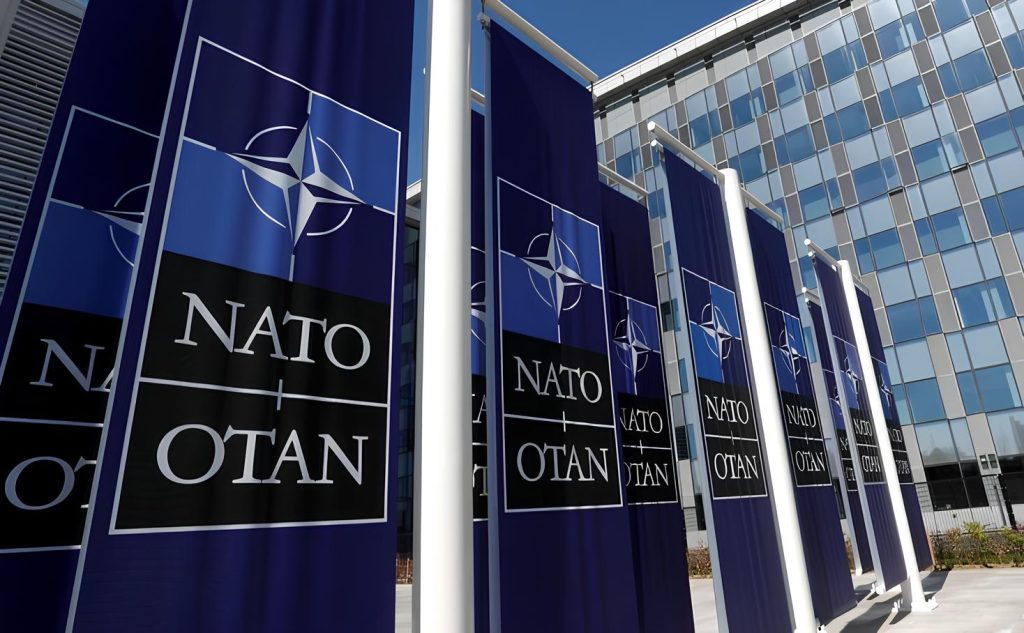








NATO’s future and its stance on supporting Ukraine are at a critical juncture, determined by the selection of the new Secretary General.


Welcome back to Europe Brief, where we take a look at the intense debate unfolding over the selection of the next NATO Secretary General. Amid the ongoing Russo-Ukrainian conflict, this decision is pivotal in shaping the alliance’s future and its continued support for Ukraine. With Jens Stoltenberg set to depart, the race between Mark Rutte and Klaus Iohannis highlights a divide within NATO, reflecting deeper geopolitical dynamics and the alliance’s commitment to standing up against Russian aggression.
Although the death of imprisoned Russian political dissident Alex Navalny at the hands of the Russian regime on February 16, 2024 has dominated recent European news, another critical event is taking place that has received much less media coverage: the selection of the next NATO Secretary General. The current NATO Secretary General, Norwegian politician and former Prime Minister Jens Stoltenbeg, was appointed in his current position by the North Atlantic Council on March 28, 2014, and re-appointed four times since – thus making him the longest-serving holder of this post in four decades. He was due to depart his job two years ago, but when Russia invaded Ukraine the NATO allies persuaded him to stay on for one more mandate to deal with this major European crisis.
No one expected at the time that two years later, the Russo-Ukrainian conflict would still be going on unabated, with no end in sight. As Mr. Stoltenberg has now confirmed his departure, the question of who will replace him has again surfaced. Today, the role of NATO General Secretary has become more critical than ever, not only because it represents the public face of the alliance, but because the person filling this position will have a key role to play in bringing all Alliance leaders together and persuading them to maintain a common front against their adversaries in this age of renewed power politics – and especially in their continuing support of Ukraine against Russia’s unprecedented and devastating aggression. In short, ‘Who Will Lead NATO?” is by far the most important question being debated across most European chancelleries at the moment.
When key founding members US, UK, France, Germany and the Netherlands agreed to support the selection of former Dutch Prime Minister Mark Rutte, fifteen other countries joined them and seemed to make his appointment a pre-ordained conclusion. But ten NATO members – primarily in Eastern Europe – remained undecided, because of Rutte’s ambiguous stand against Russia’s invasion of Ukraine, as well as his failure to bring the Netherlands’ yearly defence spending above the minimal agreed threshold of 2% of national GDP. And so, last Thursday, February 22, Romania notified its NATO allies that Romanian President Klaus Iohannis was considering throwing his hat in the ring and challenging Rutte for NATO’s top job.
Klaus Iohannis would bring considerable assets to the position of NATO Secretary General: he is currently completing his second mandate as Romanian president – time during which he demonstrated a stalwart support of NATO and the Euro-Atlantic community. During his time as President, Romania upped its defence spending above the 2% of GDP spending requirement and transformed his country into a key front-line Alliance state against Russian aggression. Together with Poland the three Baltic countries, Romania now is one of the NATO countries most at risk of Russian invasion and therefore most determined to stand up to the Putin regime and continue supporting Ukraine’s fight for its freedom and sovereignty.
However, the appointment of the NATO Secretary General is done by the leaders of the Alliance’s member states, where the votes of countries such as France, UK, Germany and above all the US carry decisive weight. It remains to be seen whether the Alliance’s eastern states who are most at risk from Russian President Vladimir Putin’s expansionist designs and who are leading the fight against his invasion of Ukraine will be able to change the mind of their western colleagues and persuade them to appoint Klaus Johannis for this position – or whether Mark Rutte will win the day. Be it as it may, whoever will replace Jens Stoltenberg as NATO Secretary General will have big shoes to fill and no room for error: as we are about to enter the third – and possibly decisive – year of the Russo-Ukrainian war, the future not only of NATO, but of the entire Euro-Atlantic community is now at stake.
Written By: GABRIEL RAMIREZ
Written By: DILARA SAHIN
Written By: DILRUBA YILMAZ
Written By: NILAY CELIK
Written By: ELDANIZ GUSSEINOV
Written By: JOSEF SCHOEFL
Written By: SELCAN BEDIRHANOGLU
Written By: FATIH CEYLAN
FA’s flagship evening newsletter guilding you through the most important world streis ofthe day. Delivered weekdays.